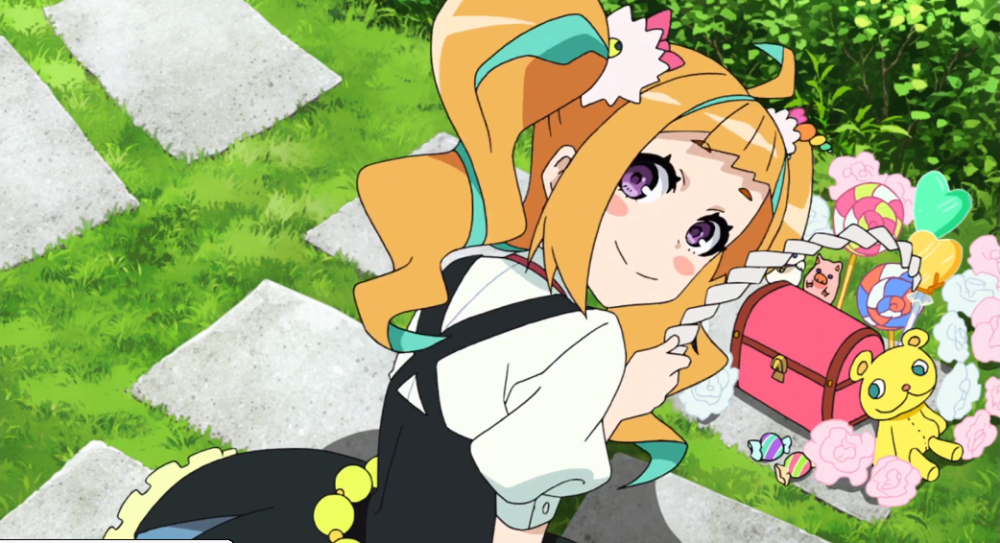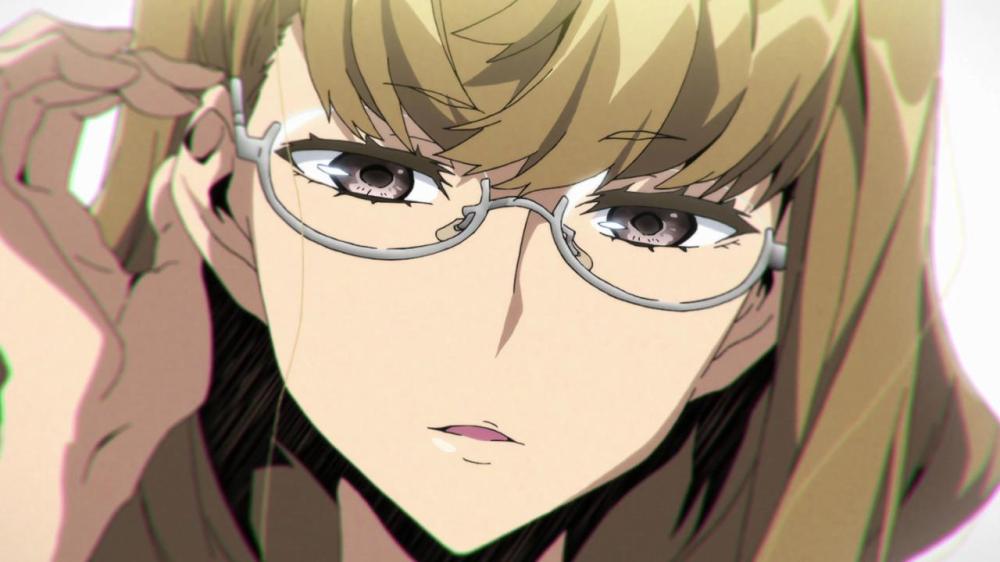Kiznaiver Episode Twelve Review
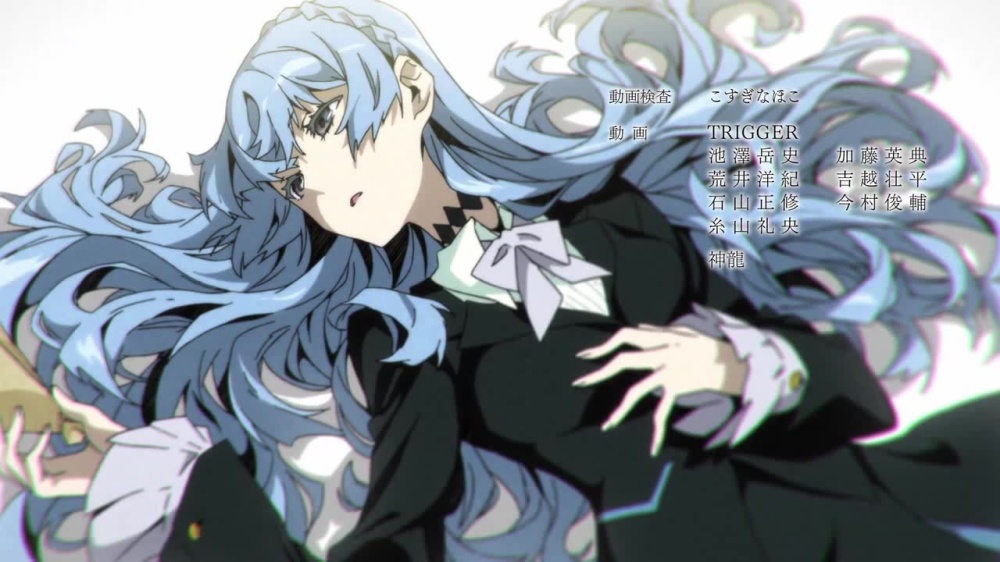 Kiznaiver ends as mysteriously as it began, leaving me with a bittersweet aftertaste – I have yet to answer the question I began with, which is whether I enjoy this show. I feel like I have eaten an entire cake, and am still unsure if I even liked it. One would hope so, since I ate the cake and licked the plate clean, but it’s hard to say. What I have figured out is that there are really two stories being told here. There is the story told though the superb animation and sound, and then the story told through dialogue. One of these stories is far stronger.
Kiznaiver ends as mysteriously as it began, leaving me with a bittersweet aftertaste – I have yet to answer the question I began with, which is whether I enjoy this show. I feel like I have eaten an entire cake, and am still unsure if I even liked it. One would hope so, since I ate the cake and licked the plate clean, but it’s hard to say. What I have figured out is that there are really two stories being told here. There is the story told though the superb animation and sound, and then the story told through dialogue. One of these stories is far stronger.
The lesson I learned from Kiznaiver is that the story in an anime is actually several complementary stories, intertwined. This may seem like common sense, but rarely is it as evident as it is here. The dialogue itself was sort of trite, which may be an issue of translation, but I am simply not impressed by lines like “are you dissing me now?” or anything that has to do with the power of friendship. I was instead impressed by the small visual touches throughout, like the scene where Sonozaki gives her dramatic monologue to an old man on a bench, or where a bunch of mascots have a nonsensical turf war. And then there are the great colors, such as the contrasting reds and blues that make this episode so stunning throughout.
I feel as if the episode would work better without the dialogue, with the characters just spouting gibberish instead. The few really good lines would be clear, but otherwise it would just be soft, garbled nonsense. I’m convinced that version would still be very easy to follow. We would know that these characters are close, that one is aloof and isolated, and that ultimately her cold heart starts to thaw. And it would still be clear who likes who, as the emotive animation really lets the characters personalities and motivations shine through.
Or instead, imagine the show with shitty or even passable animation. Imagine the lack of small touches and vivid coloring. Would there be the same emotional impact? What makes Kiznaiver such a triumph is that some remarkable animation made an otherwise middling story very strong. What this rise in quality helps show is that not every “I love you” is equal – it is a about delivery and atmosphere surrounding the line. The “I love you” in this episode works because of the surrounding presentation.
My main problem was that the dialogue was very pretentious and melodramatic, and yet the writing seemed to validate that kind of thinking. Talking about the power of friendship should not be a real revelation. What is also frustrating is that there are some good moments of writing, like when our characters acknowledge that friendship is, in fact, not “omnipotent.” But the real story that stole the show for me was the one of visuals, which dripped personality and perhaps conveyed more information than the dialogue itself.
Little mannerisms, like the way Nori Chan holds the back of her neck, really help to define the characters, while the use of colors helps to create the necessary mood. Ultimately, a middling story was elevated to something really effective. Against the striking blues and reds, Sonozaki tries to create a passionate world, only to wind up with a much less satisfying one. The show ends not with an explosion of emotion, but with a little smile, as Nori and her newly christened boyfriend heal their bodies and hearts. This ensemble show, about a cast of seven characters, is ultimately hijacked by an eighth. This is a fitting and interesting way to end things, for a character who tried to live vicariously through others, but ultimately settles for being herself – whatever that will be.
Episode Twelve Score: 8.0
Check back in on the site for regular reviews and random thoughts
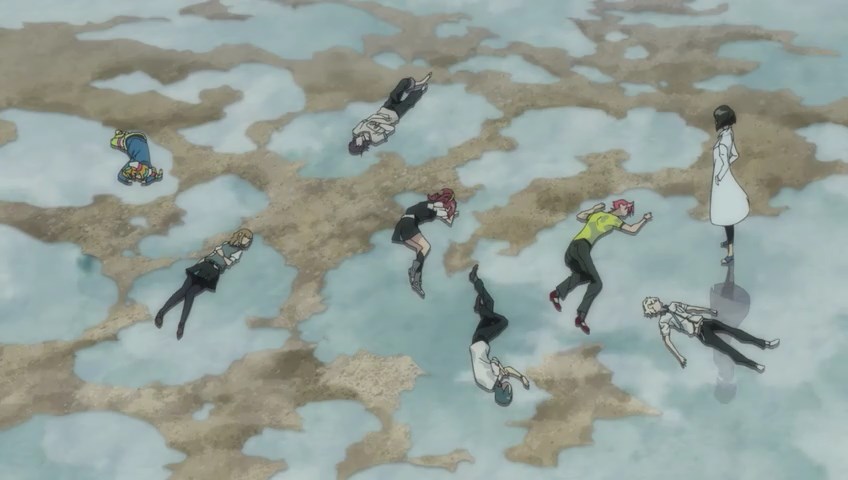 Too many anime fall under the genre of high school mellow drama, which is really too bad. I’d rather not watch young people taking their lives too seriously, when they’re far from their most interesting years (one would hope). I recently talked to someone at the end of his high school days, looking back bitterly at the unrequited love and meanness that came with young adulthood. And he remembers what his parents told him at the start of high school – “high school will be the best days of your life. “Well I fucking hope not,” he told me. I never thought for a second that those teen years would be my glory days, but no nerd ever does. If you reach your “final form” by the age of seventeen, then what do you have to look forward to?
Too many anime fall under the genre of high school mellow drama, which is really too bad. I’d rather not watch young people taking their lives too seriously, when they’re far from their most interesting years (one would hope). I recently talked to someone at the end of his high school days, looking back bitterly at the unrequited love and meanness that came with young adulthood. And he remembers what his parents told him at the start of high school – “high school will be the best days of your life. “Well I fucking hope not,” he told me. I never thought for a second that those teen years would be my glory days, but no nerd ever does. If you reach your “final form” by the age of seventeen, then what do you have to look forward to?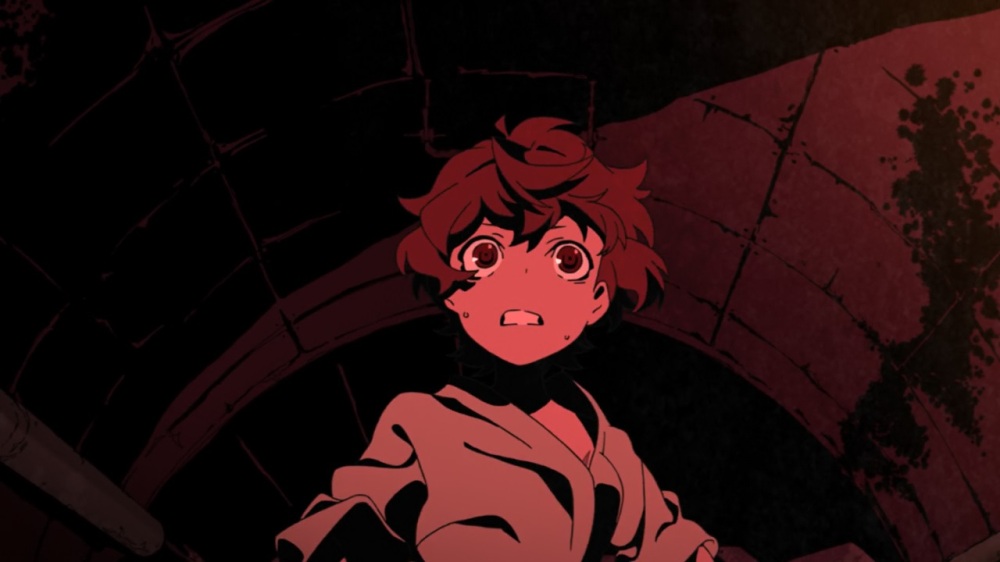 A lot of successful shows can be put into one of two camps – a story about interesting nothing, or about straightforward excitement. This season’s Kabaneri is an exemplary example of the latter. And we finally have a representative of the former, as Kiznaiver starts to hit its stride. The show is about the small things, as little details accumulate from the first three episodes and turn into fodder for conversations.
A lot of successful shows can be put into one of two camps – a story about interesting nothing, or about straightforward excitement. This season’s Kabaneri is an exemplary example of the latter. And we finally have a representative of the former, as Kiznaiver starts to hit its stride. The show is about the small things, as little details accumulate from the first three episodes and turn into fodder for conversations.